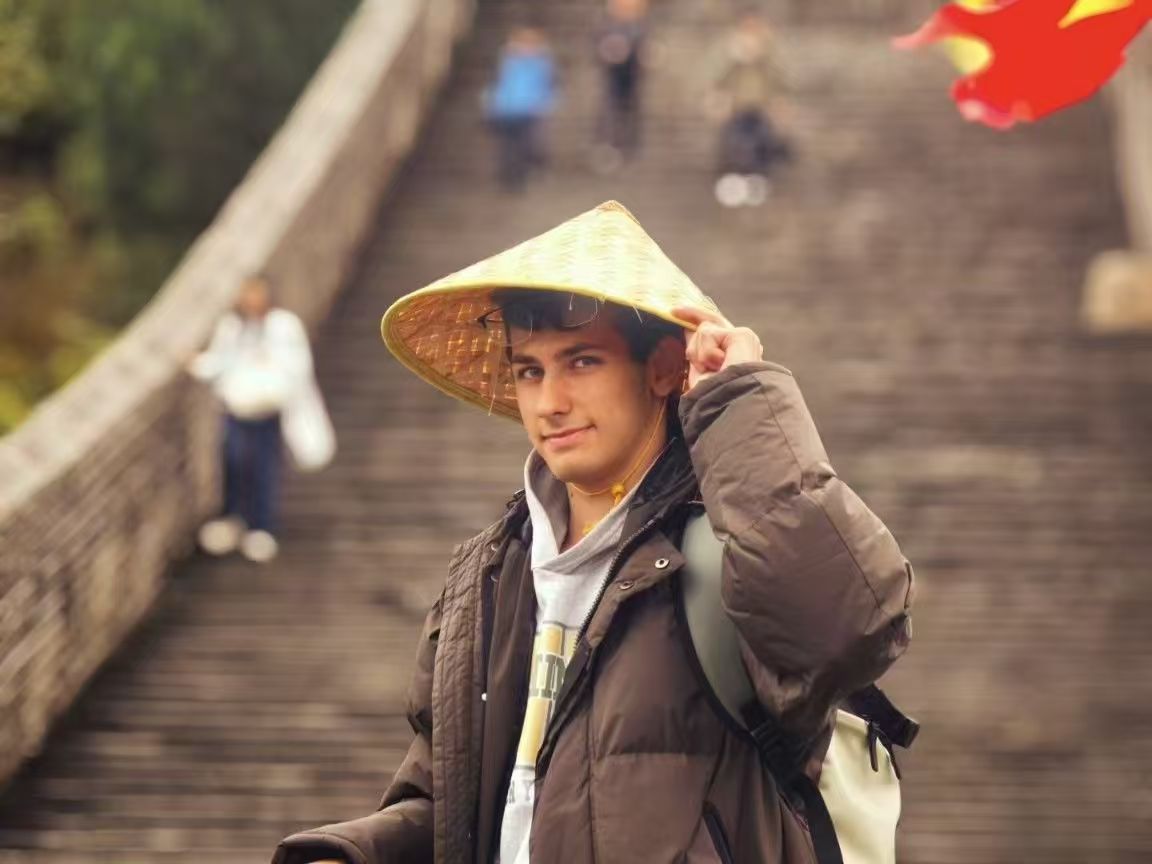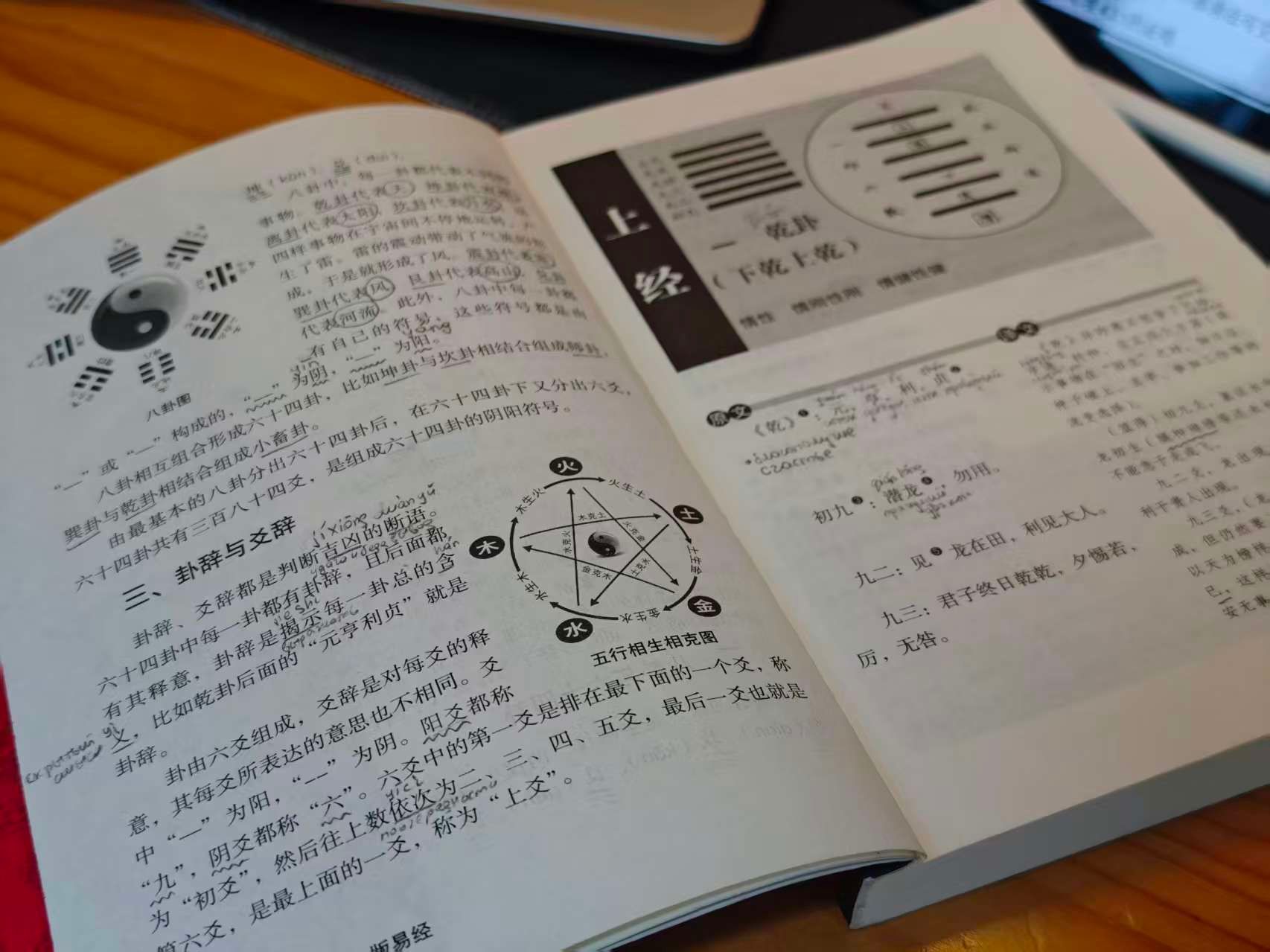From Baku with Dreams: Finding a Voice and a Home in Tianjin
On a crisp October day in 2025, Ravanov Eldar, a 17-year-old freshman majoring in electronic information engineering at the University of Science and Technology of China, returned to Tianjin—a city that had shaped his dreams and marked the beginning of his journey in China.

Known by his Chinese name, He Yan, which means “fire” and symbolizes passion and vitality, Eldar reflects on how his time in this city marked the start of his transformation. “I only spent a year at Tianjin University studying Chinese,” he says, standing on the campus where his story in China began, “but this place will always be my alma mater. It’s where I first connected with China.”
Eldar’s story is one of transformation—a boy from the shores of the Caspian Sea who once struggled to learn Mandarin has grown into a confident young man fluent enough to tell China’s stories to the world. His journey from Baku to Tianjin, and now to Hefei, is a tale of dreams, resilience, and an enduring flame that continues to burn brightly.
A Name That Holds Fire
The name He Yan, given to Ravanov Eldar by his Mandarin teacher at the Confucius Institute back in Azerbaijan, carries deep symbolism. The character “Yan” (炎) means “fire,” representing energy and vitality. “My teacher said I learn quickly, and my eyes seem to have a certain spark,” Eldar recalls with a laugh.

Born in 2008 in Baku, the capital of Azerbaijan, Eldar grew up in a city where the winds off the Caspian Sea stirred dreams of distant horizons. His upbringing was steeped in cross-cultural influences: his mother, a journalist, taught him the power of storytelling, while his father, an international oil trader, inspired him with a pragmatic, global perspective.
Eldar’s childhood was a tapestry of movement and languages. He spent four years in Russia, attended first grade in Iraq, and then returned to Baku. These frequent relocations exposed him to multiple languages—Azerbaijani and Russian as his native tongues, English as a tool for learning and competition, and eventually Mandarin, which would become a life-changing passion.
Unlocking the World of Mandarin
In 2022, during his first year of high school, Eldar’s father encouraged him to learn Chinese. “Azerbaijan was one of the first countries to actively support the Belt and Road Initiative. Over the years, our trade with China has grown, and my father believed the future would bring even closer cooperation. He said I should learn Chinese and better understand China,” Eldar recalls.
With a “let’s give it a try” attitude, Eldar began watching Mandarin tutorials on YouTube and bought an HSK Level 1 textbook. For six months, he struggled to study on his own. “It was really tough. I felt like I was barely holding on,” he admits.
Seeing his son’s frustration, Eldar’s father decided to give him a push by enrolling him in the Confucius Institute at Baku State University, just a 30-minute drive from their home. From that point on, Eldar’s afternoons were dedicated to learning Mandarin, and his progress accelerated rapidly.
In 2023, a pivotal moment came when Eldar participated in the “Chinese Bridge” competition in Azerbaijan. He won third place and earned a spot in a two-week summer camp in China.
The trip was transformative. At Anhui University, Eldar studied Mandarin and explored Chinese culture and history, from the Qin Dynasty to calligraphy and porcelain. One moment stands out: during a calligraphy class, Eldar became obsessed with mastering the intricate Chinese character “biang” from the name of the famous Biangbiang noodles. “It’s one of the most complicated Chinese characters, and even many Chinese people can’t write it,” he says proudly. “I practiced over and over until I could write it in one fluid motion.”
Standing atop Mount Huangshan, Eldar marveled at the poetic grandeur of “viewing all mountains from the top.” In Shanghai, he was captivated by the city’s blend of historic charm and futuristic ambition. Back in Baku, as he continued studying Mandarin on the bus, China was no longer an abstract concept on a map. It had become real—alive with people, places, and stories.
Tianjin: Where Independence Begins
In September 2024, at just 16 years old, Ravanov Eldar arrived in Tianjin alone to begin his studies at Tianjin University, becoming the youngest international student on campus. The year-long language program gave him a chance to not only improve his Mandarin but also immerse himself in cultural activities.
Known as He Yan among his Chinese peers, Eldar quickly became a fixture in the university’s cultural scene. He hosted New Year galas and cultural festivals, performed in the “Chinese Bridge” dubbing show, and prepared speeches for competitions. “My speeches often included lines like, ‘A sharp sword is forged through honing, and the fragrance of plum blossoms comes from bitter cold.’ Memorizing and understanding these phrases not only improved my Chinese but also inspired me,” he says.
By the end of the year, Eldar earned a reputation as “the foreign student who tells China’s stories best.” In 2025, he won the Excellence in Style Award at the “Chinese Bridge” Global Foreigners’ Chinese Conference and was named a “Star of Communication” at the 5th “Telling China’s Stories in English” competition.

Eldar is modest about his achievements. “My Chinese still isn’t perfect. I have a long way to go,” he says. But when faced with challenges, he finds comfort in Confucius’ words: “When three walk together, there must be someone I can learn from,” and “Is it not a joy to have friends come from afar?”

Toward a New Chapter
In September 2025, Ravanov Eldar began his undergraduate studies at the University of Science and Technology of China, embarking on a new academic journey. For him, combining language with technical expertise is key. “I want to connect what I learn with real-world challenges,” he explains.
Eldar envisions a future where his background in electronic information engineering bridges Azerbaijan’s oil and gas resources, the Caspian Sea’s wind power, and China’s manufacturing and technological expertise. “Through algorithms and circuits, I hope to connect these worlds,” he says.
In Azerbaijani, fire symbolizes the land. In Chinese, He Yan represents the image of rising flames. Together, they reflect who he is—Ravanov Eldar from the shores of the Caspian, and He Yan, a student of China’s language and culture.
“I hope to use Chinese to tell stories,” he says. “And I want to use technology to solve real problems.”
At just 17, Ravanov Eldar is already shaping his future. Perhaps one day, when he finishes reading The Analects, he’ll leave a note in the margins: “Follow your heart, and your feet will take you where you belong.”
By Eva Yin

